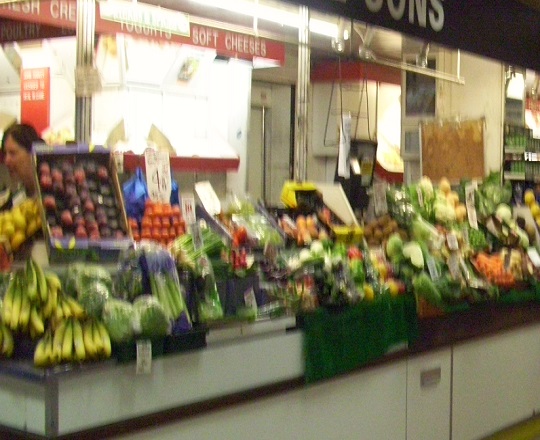Will food prices rise in the new year in the UK?

There has been some speculation: Will food prices rise in the new year. But it’s complicated and involves some contentious issues. There are so many factors that will affect food prices – fuel and transport costs; the exchange rate; weather and climate change; availability of seasonal workers; the impact of the lockdown; and (yes!) Brexit.
I started by talking to an oil industry expert. The industry is in a state of disarray, and oil prices are low. But they will certainly rise during the next six months, and with it the cost of transporting food.
The pound has fallen against other currencies in recent years. If that continues, it will make imported goods, including foods, more expensive.
The weather, the climate and food costs
We’ve had a wet winter with floods yet again, a long dry spring and heavy rain in late August. It’s what we’re coming to expect, with climate change the main cause.
Winter rains have made the last two years the worst for potatoes for 40 years (according to McCains). This, and reduced demand from the hospitality sector during lockdown caused prices to halve. Supermarkets stepped in to take advantage, but their gain was the growers’ loss. And the small harvest means a shortage, which will lead to a price rise in the new year.
Grain harvests were also down – winter wheat by as much as 45% because of flooding. The Centre for Ecology and Hydrology estimates that the summer grain harvest is 15% down, the largest drop for 20 years; but they only looked at larger, highly mechanised farms, so the overall picture could be worse. Instead of a net exporter, Britain is likely to become a net importer of grain.Food shortages because of weather / climate vary across the country and between products – there was a bumper apple crop for example.
However wholesale food prices from March to July rose – carrots by 80%, onions by 41% and wheat by 20%.
The changing climate has had an affect all over the world, which affects us. For example the earlier start to the hurricane season in the USA has caused a maize shortage.
Brexit
In round figures 50% of the food in Britain is home produced, 30% imported from or through the EU and 20% from outside the EU (which includes countries with an EU trade deal).
85% of food from the EU would attract a tariff of 5% or more under WTO terms, with an average tariff of 20%. For beef mince it would be 48%. So food prices will rise, depending on the deal that Britain can negotiate.
The seasonal workers
Between 70,000 and 90,000 seasonal workers are employed picking fruit and vegetables each year in the UK. The vast majority are temporary workers from EU countries. For many it is a holiday job, although many return to the same farms every year. In the soft fruit sector (strawberries for example) 95% of 29,000 seasonal workers are from the EU. But there are 3 problems:
COVID19 travel restrictions have prevented many seasonal workers from coming to the UK, made managing those who did come more difficult in both working practices and accommodation.
The fall in the value of the pound has meant that the seasonal workers have earned less in their home currencies than before, so they are preferring to go to other countries instead. This is especially true of Romanian workers because the Italian language is very similar to their own.
The third reason is the fear that it could be more difficult to take low paid work in the UK after the Brexit transition,so workers are exploring other options.
So the Government has tried to encourage British workers to help out with the harvest. But it’s not that simple. Farms are usually in remote areas and workers may have had to be separated from family for a while; very few people in this country have agricultural experience, while many seasonal workers from the EU have had picking experience in their own countries; and the fact that it’s low paid and very hard physical work.
Of those who responded to the appeals, only 0.2% applied. The shortage of workers has had an uneven impact across sectors, with soft fruit and lettuce among those that are worst affected.
It may be possible to do something to improve the situation for next year, but for this year the damage has already been done.The proportion of our food that is imported is at its highest during the winter and spring months. So expect food prices to rise in the new year.

